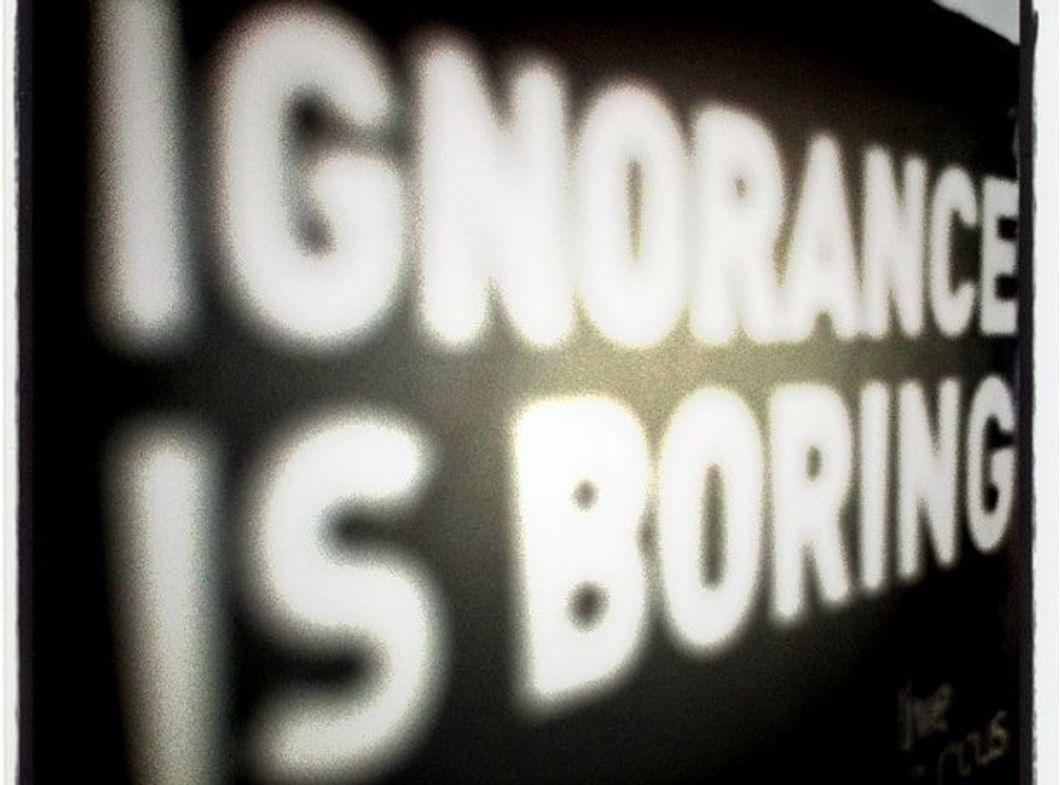There are two schools of thought on the topic of ignorance and knowledge. One says, "The truth will set you free." The other says, "Knowledge is misery." I believe these can coexist.
As quoted by Pharrell Williams in N.E.R.D. and Rihanna's song "Lemon," "The truth will set you free, but first, it'll piss you off." Comedically and realistically speaking, this is the truth! The truth may hurt at first, but in the end, it's the best thing. Ecclesiastes 1:18 says, "For with much wisdom comes much sorrow; the more knowledge, the more grief." Truth cares nothing about emotion. Truth is there solely to inform. In the words of Ben Shapiro, "Facts don't care about your feelings." It's about how you interpret truth and knowledge and use it to grow intellectually, spiritually, and/or emotionally.
There's a reason why children are so happy. They don't have the responsibilities and worries that adults have. But eventually, they grow up and learn the ins and outs of the world and that everything isn't as picturesque as they once imagined. This world is morally and physically polluted. However, ignorance of that fact does not make the world less filthy. It makes you less active. Similarly, being unaware of something does not stop it from happening. If you smoke a pack a day without the awareness that smoking causes cancer, it won't stop you from getting cancer. Ignorance only prevents your awareness and thus your ability for prevention.
Speaking on behalf of the "ignorance is bliss" belief, the grass is always greener on the other side, but what if you didn't know there was any other grass? You'd be much happier with your own if you didn't know anything out there was better. The philosopher Plato argues against this in his "Allegory of the Cave." Basically, there are three prisoners in a cave, shackled up and forced to stare at a wall. There is a fire behind them that casts shadows onto the wall showing ordinary things people are doing. One prisoner gets free, escapes the cave, and is hurt by the light. His eyes adjust and he sees amazing things he didn't know existed. He goes back to the cave to tell the other prisoners and they don't believe him. They are totally ignorant of the fact that there is more to existence than shadows on a wall.
Moral of the story, there is greener grass! Maybe the discovery of something new hurts your eyes a little bit, but it will eventually open them up to far greater possibilities than you ever imagined, as long as you don't continue to stay shackled by ignorance.
Ignorance says that the world is only beauty, while knowledge thunderstorms on that parade. But thunderstorms bring rainbows and beauty eventually fades. Would you rather have fleeting beauty or a temporary storm that brings clear skies?





 Lumiere figure at the Disney Store at the Ala Moana Shoppi… | Flickr
Lumiere figure at the Disney Store at the Ala Moana Shoppi… | Flickr








 StableDiffusion
StableDiffusion StableDiffusion
StableDiffusion 10. Extra BlanketsJuwenin Home 100% Cotton Knitted Throw Blanket
10. Extra BlanketsJuwenin Home 100% Cotton Knitted Throw Blanket StableDiffusion
StableDiffusion StableDiffusion
StableDiffusion File:Kishlaru familie.jpg - Wikimedia Commons
File:Kishlaru familie.jpg - Wikimedia Commons Photo by Hanna Balan on Unsplash
Photo by Hanna Balan on Unsplash StableDiffusion
StableDiffusion black blue and yellow round illustrationPhoto by
black blue and yellow round illustrationPhoto by 





 woman holding glass jar
Photo by
woman holding glass jar
Photo by 








